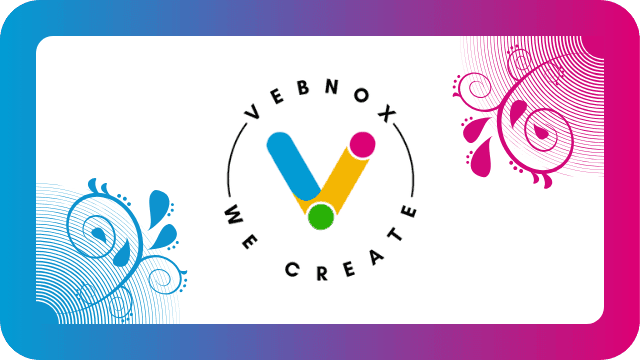Powerful Online Marketing Solutions for Business Success
Table of Contents
Introduction to Online Marketing Solutions
In the rapidly evolving landscape of modern business, online marketing solutions have emerged as crucial tools for achieving success. Unlike traditional marketing methods, which often rely on physical advertisements such as print or television, online marketing leverages digital channels to reach consumers. This shift toward a digital-first approach enables businesses to engage with a broader audience while also providing cost-effective options for reaching potential customers.
One of the key distinctions between online and traditional marketing is the ability to precisely track and analyze consumer behavior. Digital marketing strategies, which include search engine marketing (SEM), social media marketing, and content marketing, allow businesses to gather data on their audience’s preferences and interactions. This information facilitates more targeted and effective marketing campaigns, ensuring that the content resonates with potential customers. As a result, businesses can direct their resources towards strategies that yield the highest return on investment, ultimately driving online business growth.
The advantages of adopting online marketing solutions are manifold. Not only do they enhance online visibility, but they also empower businesses to build and maintain a strong online presence. By employing search engine optimization (SEO) services, organizations can increase their website traffic and improve their ranking on search engines. Furthermore, digital advertising through pay-per-click (PPC) marketing campaigns enables businesses to position their offerings in front of specific demographics, heightening the likelihood of conversions.
In addition to driving targeted traffic to their websites, businesses that engage in email marketing benefit from nurturing relationships with their customers, enhancing customer loyalty and retention. As companies navigate the competitive digital landscape, embracing sophisticated online marketing strategies becomes essential. Adopting these powerful solutions will ultimately determine their resilience and success in a constantly changing marketplace.
Understanding Your Target Audience
To maximize the effectiveness of your online marketing strategies, it is imperative to first understand your target audience. This involves a comprehensive approach to identifying who your customers are, what their preferences entail, and how they engage with your offerings. Conducting market research is a foundational step in this process. Utilizing surveys, interviews, and focus groups can provide invaluable insights into customer behavior, interests, and needs, helping in the refinement of your digital marketing solutions.
Audience segmentation plays a crucial role in targeted marketing. By categorizing your audience based on specific characteristics such as demographics, psychographics, and purchasing behavior, you can tailor your marketing efforts to address the distinct needs of each group. For instance, a business may choose to differentiate its digital advertising efforts based on age groups or geographic locations, ensuring that the message resonates with the right individuals, thus enhancing online visibility.
Creating buyer personas is another vital tactic that helps in understanding your audience. These detailed profiles embody your ideal customers and are crafted from data collected during the research phase. They simplify the decision-making process for SEO services, content marketing strategies, and social media marketing efforts, as they provide a clearer picture of what content and engagement tactics will resonate with your audience.
Ultimately, knowing your audience is not just beneficial; it is essential for driving business growth. When marketing strategies are informed by a deep understanding of customer needs and preferences, businesses are more likely to achieve increased website traffic, higher engagement rates, and ultimately, improved online business growth. As you develop your digital marketing campaigns, ensure that every decision is backed by an understanding of your audience to create effective SEM campaigns and PPC marketing initiatives that convert.
SEO Strategies for Business Growth
Search Engine Optimization (SEO) plays a critical role in online marketing, offering businesses a pathway to enhance their visibility on search engines and drive organic traffic. Implementing effective SEO strategies is essential for achieving substantial online business growth. One of the foundational elements of SEO is keyword research, where businesses identify relevant keywords that align with their target audience’s search intent. Utilizing tools such as Google Keyword Planner, businesses can discover high-traffic keywords with manageable competition levels that should be integrated into their content marketing efforts.
On-page SEO techniques focus on optimizing individual web pages to improve their ranking in search engine results. This includes optimizing title tags, meta descriptions, headers, and content to ensure relevant keywords are strategically utilized. Additionally, maintaining quality content is paramount; engaging, informative, and original content can lead to increased website traffic and higher conversion rates. Off-page SEO strategies, including backlink building, are equally vital as they enhance a site’s authority and relevance in the eyes of search engines. Developing relationships with reputable sites for guest blogging or creating shareable content can help in acquiring valuable backlinks.
Moreover, technical SEO considerations should not be overlooked. This involves optimizing website performance, ensuring mobile-friendliness, and improving loading speeds. A well-structured website aids both users and search engines in navigating seamlessly, ultimately reinforcing online visibility. Furthermore, focusing on local SEO is crucial for businesses targeting community-centric markets. Implementing local keyword strategies and ensuring consistency in online listings allows businesses to appear in local search results, attracting targeted traffic and potential customers.
By employing these SEO strategies, businesses not only enhance their search engine rankings but also fortify their overall digital marketing strategy, leading to remarkable business growth in the competitive online landscape.
Leveraging Social Media Platforms
In the realm of online marketing, social media platforms have emerged as pivotal channels for businesses aiming to enhance their online visibility and drive engagement. With billions of users on platforms like Facebook, Instagram, Twitter, and LinkedIn, companies can tap into a vast pool of potential customers. Each platform offers unique advantages tailored to different marketing goals. For instance, Instagram’s visual-centric approach is ideal for brands focusing on product aesthetics, while LinkedIn serves as a robust networking tool for B2B marketing.
Effective engagement with audiences on social media requires a deep understanding of the target demographic. Crafting shareable content is essential; this can include informative articles, eye-catching images, and captivating videos. A well-structured content strategy that resonates with the audience can significantly boost website traffic, contributing to business growth. The value of creating content that encourages interaction cannot be overstated. Posts that incorporate polls, questions, and calls to action often perform better in terms of engagement metrics.
Paid social advertising is another powerful tool within digital marketing, allowing businesses to reach targeted traffic that may not be exposed to organic posts. Through platforms’ ad functionalities, marketers can create SEM campaigns that fine-tune audience targeting based on various parameters such as interests, behaviors, and demographics. Many businesses have successfully leveraged these paid promotional options to amplify their market reach and drive sales.
Real-world examples abound, illustrating the impact of social media marketing. Companies like Nike and Starbucks have mastered the art of engaging their customers through consistent, relatable content and strategic advertising campaigns. By analyzing and learning from such case studies, businesses can refine their online marketing strategies, ensuring they effectively harness the full potential of social media. Ultimately, a strategic approach to social media can propel an enterprise’s digital advertising efforts, ensuring sustainable online business growth.
Email Marketing: Building Lasting Relationships
Email marketing remains one of the most potent online marketing strategies for fostering enduring relationships with customers. Unlike other digital marketing channels, it provides businesses with a direct line to their audience, allowing for personalized and relevant communication. Effectively leveraging email marketing can significantly enhance online business growth by increasing customer engagement and loyalty.
To create effective email campaigns, businesses should start by developing a clear content strategy that aligns with their overall marketing objectives. This involves crafting informative and valuable content that resonates with the target audience. Segmenting email lists is a crucial step in this process. By grouping subscribers based on their interests, demographics, or past purchase behavior, companies can deliver tailored messages that are more likely to generate engagement. Such targeted communications not only improve open rates but also foster a sense of connection between the brand and the customer.
Additionally, automation plays a vital role in optimizing email marketing efforts. Automated emails, such as welcome messages or follow-up reminders, ensure that timely communications are sent without manual intervention. This not only saves time but also enhances the customer experience by providing relevant information when it is most needed. Emphasizing customer retention, there are numerous opportunities to utilize email marketing to keep audiences engaged and informed about new products, services, or promotions.
The effectiveness of email campaigns in generating higher conversion rates cannot be overstated. By employing A/B testing to refine subject lines and content, businesses can greater understand what resonates best with their audience. This kind of optimization contributes to improved click-through rates, ultimately leading to better customer conversion and retention.
In conclusion, well-executed email marketing serves as a cornerstone of modern digital marketing efforts, reinforcing customer relationships and supporting ongoing business growth. By focusing on segmentation, automation, and personalized content, businesses can maximize their online visibility and create meaningful connections with their audience.
Content Marketing: Driving Engagement and Value
Content marketing plays a crucial role in the realm of online marketing, serving as a foundational element for effective digital marketing strategies. It focuses on creating and distributing valuable, relevant content to attract and engage a target audience, ultimately driving profitable customer actions. By formulating a robust content strategy, businesses can enhance their online visibility and establish themselves as authorities within their respective industries.
To successfully implement content marketing, it is essential to identify the interests and preferences of your target audience. This can be achieved by conducting market research and analyzing audience behavior. Once clear insights are obtained, businesses can create various types of content, such as informative blogs, engaging videos, compelling infographics, or interactive webinars. Each format serves a unique purpose and can be tailored to different segments of your audience. For instance, blogs are effective for SEO services and providing in-depth knowledge, while videos can capture attention quickly and are well-suited for social media marketing campaigns.
In addition to creating diverse content formats, effective distribution is key to maximizing reach and impact. Leveraging multiple channels, such as email marketing, social media platforms, and online advertising services, can significantly increase the visibility of your content. Implementing SEO best practices allows content to rank higher in search engine results, thus attracting targeted traffic. Furthermore, paid search marketing strategies, including SEM campaigns and PPC marketing, can contribute to driving traffic to valuable content, enhancing online business growth.
By consistently delivering high-quality content that resonates with the audience, businesses can cultivate engagement, foster loyalty, and ultimately drive conversions. Content marketing, when integrated with other digital marketing solutions, serves as a powerful avenue for achieving sustained business growth and enhancing overall online marketing performance.
Data Analytics and Performance Tracking
In today’s competitive landscape, data analytics has emerged as a cornerstone of effective online marketing. Businesses leveraging digital marketing solutions need to track performance meticulously to ensure their strategies are yielding desired results. By utilizing various tools and metrics, companies can gain vital insights into customer behavior, preferences, and engagement patterns, which is essential for driving online business growth.
Key performance indicators (KPIs) are central to this process. Metrics like website traffic, conversion rates, and click-through rates provide a quantifiable measure of marketing effectiveness. For instance, websites employing SEO services can track organic traffic resulting from optimized content, ensuring that their content marketing efforts align with user intent. In addition, businesses can analyze data from search engine marketing campaigns to assess which ads generate the most engagement, guiding the direction of future SEM campaigns.
Moreover, various data analytics tools are available to aid businesses in their tracking efforts. Google Analytics, for example, allows users to observe traffic patterns, demographic information, and user behavior on their websites. This invaluable information can be utilized to fine-tune online marketing strategies, enabling brands to target their audience more effectively and boost online visibility.
Continuous analysis of performance metrics fosters a culture of optimization. By regularly reviewing data, businesses can identify successful tactics and areas needing improvement, leading to more informed decisions regarding email marketing, social media marketing, and overall campaign strategies. With a data-driven approach, companies can not only enhance their digital advertising efforts but also ensure sustainable business growth.
Adopting Automation in Marketing
In the realm of online marketing, adopting automation stands as a critical strategy that enhances marketing efforts and streamlines processes for achieving business success. Marketing automation refers to the use of software and tools designed to automate repetitive marketing tasks, allowing businesses to focus on strategic initiatives that drive growth. This approach plays a pivotal role in digital marketing by optimizing resources and improving operational efficiency.
One of the most significant applications of marketing automation is lead generation. Automated campaigns can nurture leads through personalized email marketing and targeted content marketing strategies, ensuring that potential clients receive relevant information at the right time. Additionally, customer segmentation becomes more efficient through automation tools, allowing businesses to categorize their audience based on behavior, demographics, and engagement levels. Such segmentation enables more precise targeting, resulting in higher conversion rates and improved online business growth.
Campaign management also benefits enormously from automation. With digital advertising tools, businesses can schedule and manage multiple social media marketing and SEM campaigns effortlessly, ensuring consistent engagement with their audience. The ability to monitor campaign performance in real-time enables marketers to make data-driven decisions swiftly, ultimately enhancing website traffic and online visibility.
Moreover, automation fosters better customer experiences by delivering timely communication and personalized interactions. By utilizing SEO consulting and paid search marketing strategies, businesses can ensure that their automated efforts align with search engine algorithms, leading to improved website SEO and visibility in search results.
Overall, incorporating automation within online marketing strategies presents numerous benefits, including increased efficiency, better targeting, and an enhancement in customer experiences. As organizations strive for business growth, embracing automation will undoubtedly become a cornerstone of successful digital advertising endeavors.
Case Studies of Successful Online Marketing Solutions
In the rapidly evolving realm of online marketing, numerous businesses have effectively employed diverse strategies to achieve formidable growth and enhance their online visibility. Case studies of successful online marketing solutions illuminate the pivotal approaches that have proven beneficial in real-world applications. One notable instance is that of a local retail company that harnessed search engine marketing (SEM) to boost brand awareness. By employing a combination of targeted pay-per-click (PPC) marketing campaigns and refined SEO services, the company not only amplified website traffic but also converted this influx into substantial revenue growth.
Another compelling case involves a B2B service provider that successfully integrated content marketing into their overall digital marketing strategy. By developing insightful blog posts and whitepapers, the company was able to position itself as an industry thought leader. This strategic approach drew increased targeted traffic to their website, fostering valuable engagement through email marketing initiatives. As a result, the business experienced a dramatic increase in leads, subsequently contributing to sustained business growth and reinforcing their market position.
A technology startup also serves as a prime example, particularly in the realm of social media marketing. Recognizing the importance of customer engagement, they implemented digital advertising campaigns across various platforms. Through careful analysis and optimization of their content strategy, the startup successfully reached a broader audience while simultaneously fostering community interaction. This dynamic approach not only enhanced their online presence but also created a loyal customer base, which is essential for the ongoing success of any online business.
These case studies illustrate that the amalgamation of effective online marketing strategies—ranging from SEO consulting to SEM campaigns—can yield transformative outcomes. By learning from these examples, businesses can better navigate the complexities of digital marketing, ultimately achieving their unique goals and aspirations.





Comments are closed